We got invited to showcase the work on the smartphone brain scanner as part of a EURO Tech meeting in Bruxelles. Yet again we got a lot of enthusiastic response on our work.
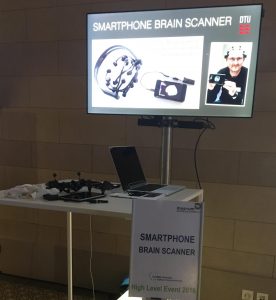

We got invited to showcase the work on the smartphone brain scanner as part of a EURO Tech meeting in Bruxelles. Yet again we got a lot of enthusiastic response on our work.

Today my PhD student Arek Stopczynski successfully defended his PhD thesis ‘Mobile Phones as Cognitive Systems‘. Congratulations, Arek!
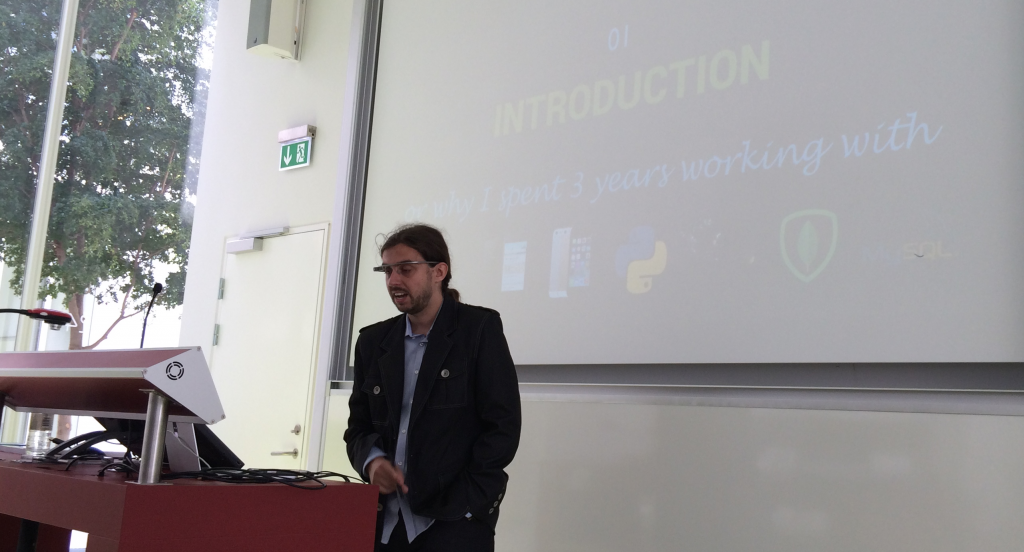
Danish Prime Minister Helle Thorning-Schmidt and the Minister for Economic Affairs and the Interior, Margrethe Vestager, paid a visit to DTU on May 5.
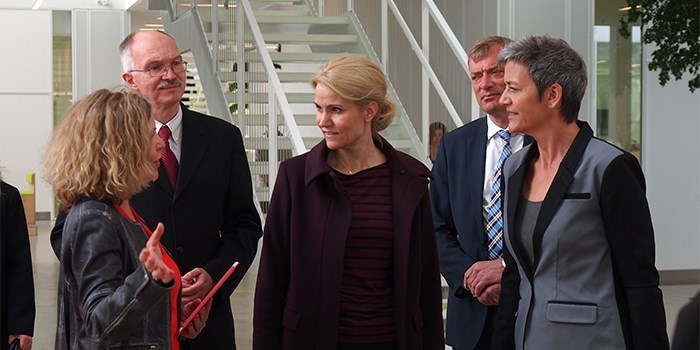
Head of our Department of Applied Mathematics and Computer Science (DTU Compute), Helle Rootzén, discussed the potential of Big Data and our Smartphone Brain Scanner was showcased as an example.
My TEDx talk entitled Human Data for Life from the recent TEDxCopenhagenSalon event is available.
Over the last couple of years self-tracking has gained increased interest with the availability of smartphones and low-cost wearable sensors. The increasing quantities of data that we can capture about human behavior and interactions are key to future improvements in health and well-being.
The Smartphone Brain Scanner project was a showcase at the DTU Compute Inauguration on May 17th.
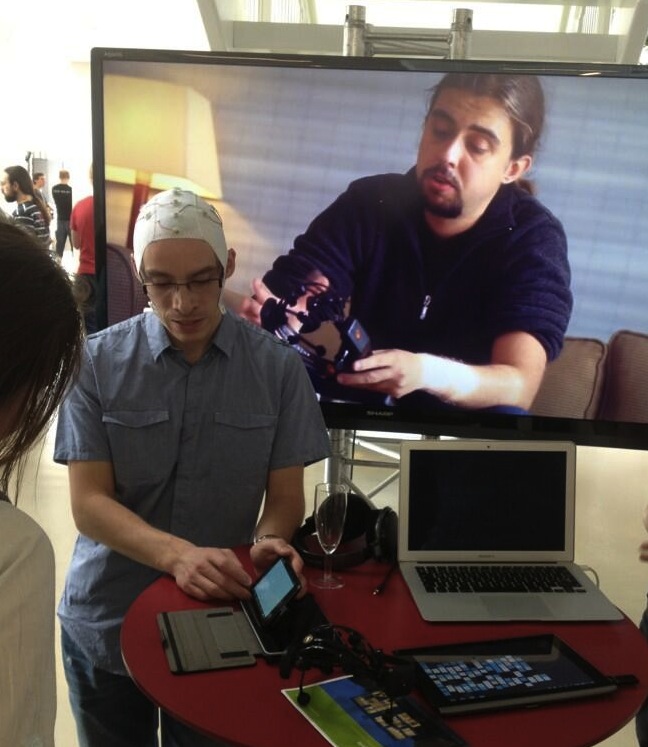
We are proud to announce the availability of the Smartphone Brain Scanner as open source under the MIT License.
SmartphoneBrainScanner is a framework for building cross-platform real-time EEG applications. Originally developed at Technical University of Denmark for collecting and analyzing signals from Emotiv EPOC headset, its extensible architecture allows working with various EEG systems and multiple platforms.
SmartphoneBrainScanner contains state-of-the-art techniques for working with multi-channel EEG signal in real-time, most notably source reconstruction methods with online adaptation to the noise level. Current implemented source reconstruction approaches cover the minimum-norm and low resolution tomography (LORETA) methods formulated in a Bayesian framework using a expectation-maximization scheme for hyperparameter estimation. The SBS2 source reconstruction is realized using a pre-build forward model connecting the cortical surface with the electrodes at the scalp. The current forward model provided with the software is a 3-spheres model obtained from the Matlab toolbox SPM8 using coarse spatial resolution and with sensor positions in accordance with the Emotiv EPOC system.
Source code and additional information is available on the smartphonebrainscanner project website.
Presentation of research paper “A Cross-Platform Smartphone Brain Scanner” at CHI 2012. The Personal Informatics in Practice: Improving Quality of Life Through Data workshop will be a gathering of researchers, designers, and practitioners exploring how to better support personal informatics in people’s everyday lives.

We demo our smartphone brain scanner at the Neural Information Processing Systems (NIPS) conference, Granada, Spain, December 12-17, 2011.

My colleague Carsten Stahlhut and I gave an interview to P1 Harddisken about our smartphone brain scanner and the recent Quantified Self Conference in Amsterdam.

The interview (in Danish) is available as a podcast and starts about the 14:20 mark.
I presented our Smartphone Brain Scanner at the first Quantified Self Conference in Europe. Since I believe in the eating your own dog food mantra I was wearing the neuroheadset and using the smartphone brain scanner while giving my short Ignite Talk.
If you thought giving an Ignite Talk was stressful (a 5 minute presentation accompanied by 20 slides each displayed for 15 seconds, and the slides automatically advance) then try giving a live demonstration of your research prototype meanwhile :-)
Feeling like a rock star was during the break after the presentation where I got to talk to so many interesting people from the quantified self community that were interested in our research.
On Nokia Conversations Ph.D. student Arek Stopczynski “talks us through this innovative breakthrough product that works by connecting a commercially available wireless 14-channel EEG headset to a Nokia N900 smartphone”.
More information about the project is available here.
We are presenting two research papers and a demo of our smartphone brain scanner at the Affective Computing and Intelligent Interaction (ACII2011) conference in Memphis, Tennessee on October 9 to 12, 2011.

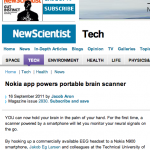 “YOU can now hold your brain in the palm of your hand. For the first time, a scanner powered by a smartphone will let you monitor your neural signals on the go.”
“YOU can now hold your brain in the palm of your hand. For the first time, a scanner powered by a smartphone will let you monitor your neural signals on the go.”
New Scientist Magazine issue 2830 14 Sept 2011 has an article Phone app runs portable brain activity scanner describing our Smartphone Brain Scanner.
A video demo of our smartphone brain scanner is available:
More information available here.
 The TV2 Lorry 19.30 program on March 4 featured Ph.D. student Carsten Stahlhut and Assistant Professor Michael Kai Petersen.
The TV2 Lorry 19.30 program on March 4 featured Ph.D. student Carsten Stahlhut and Assistant Professor Michael Kai Petersen.
They were showcasing our research involving portable EEG equipment at the recent DTU Open House event.